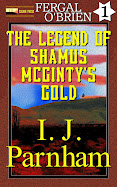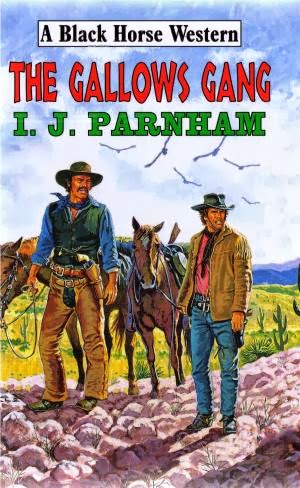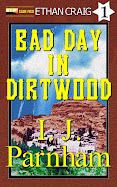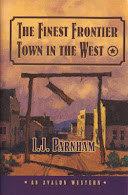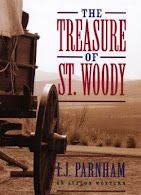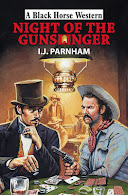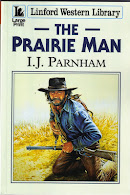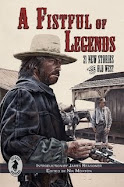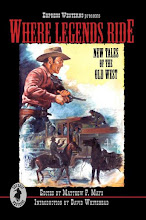Around this time of year I
usually have a moan about something I've seen on TV, usually Sherlock, but as
thankfully that's unlikely to ever annoy me again I thought that this year I'd
bang on about the best, the worst and the most entertainingly daft things I've
seen this year.
First, the good: Twin Peaks,
Season 3, Episode 8, Gotta Light. When I first heard that Twin Peaks was being
revived I wasn't too enthused despite the fact that the original makers were behind
the endeavour. I loved the show during its original run, but then again,
thinking back, I struggled to work out why.
I enjoyed the weird backward-talking
dancing dwarf side of it and I liked the murder mystery element. The optimistic
Coop and the folksy Truman are probably my favourite cop double-act, ably
backed up by mystical Hawk, goofy Andy and even goofier Lucy. Other characters
such as Leland, Ben, Norma, Denise and the Log Lady were superb, Bob will
always be the scariest character ever to appear on screen, and things like the
Invitation to Love soap in a soap and Josie getting turned into a doorknob are
still memorable. Then there's the other stuff.
There's the endless teen
angst. There's the filler material like little Nicky, James's noir exploit, and
Nadine becoming superhuman. There's the theme tune blurting out ten times an
episode. There's James singing, Audrey dancing, Bobby being cool. . . The
list of annoying scenes and sub-plots and characters is longer than anything
else I like, so whether a return would work depended on the balance between the
soap-opera, the murder mystery, and the surreal. To my surprise the return got
that balance right. It even included James singing, Audrey dancing and Bobby
being cool and made them all work.
Someone once said that
revivals of once-popular shows should give viewers what they need rather than
what they want. Most shows try to do the latter and they usually fail because no
two fans of anything can ever agree about what they want. Twin Peaks gave me
what I needed, which was something that had little to do with Twin Peaks
and more to do with a retrospective look back at the highlights of David
Lynch's film career.
Episode 8, Gotta Light, was
the thing I needed the most. I hadn't considered it before seeing that episode,
but a sequel to Eraserhead was something that was missing from my life. It was
an hour of mainly silent, black and white surreal imagery of scruffy blokes
shuffling around in search of a light interspersed with the first atom bomb,
the giant floating in a music hall and the convenience store mentioned in passing
by the one-armed man twenty-eight years ago. Nothing else I've seen this year,
or perhaps any year, was as inspired or as perfect.
In essence it was a Bob
origin story, but unlike every other origin story I've ever watched in which
explaining the motivations and forces that create a memorable character only go
to diminish the character, this origin tale worked. Although that could be
because I missed seeing Bob's face in the pile of goo, so I ended up watching it
three times before I even realized it was a Bob origin story. This was pure
story-telling that worked on an emotional level without any consideration given
to character, plot or any of the usual techniques. But before I get too
pretentious in trying to explain why I liked it I'll just say: this is the
water and this is the well. Drink full and descend. The horse is the white of
the eyes and the dark within.
If quoting those lines didn't send you to sleep, I'll move on to the bad: Safe House,
season 2, episode 4. IMDB's rating for this episode is 3.6. This is very low. It's
also too high.
Safe House has an odd
history. Season 1 starred Christopher Eccleston as a maverick cop who left the
police under a cloud after an undisclosed incident and who now battles the
demons of the past while trying to single-handedly solve an old crime and run a
safe house with his wife. It was entertaining and ended on a cliffhanger that
was interesting enough to make me watch season 2.
It was then that the bad news
broke. After a falling-out behind the scenes the cast, production crew and
location were replaced, so series 2 ignored the cliffhanger and started a new
story. This one concerned another maverick cop who left the police under a
cloud after an undisclosed incident and who now battles the demons of the past
while trying to single-handedly solve an old crime and run a safe house with
his wife.
The first three episodes were
formulaic, but watchable. The cop is the only one who believes that the serial
killer known as the Crow, who is behind bars, had a partner in crime and when
the killings restart he sets out to find him. He's blocked by his ex-boss who
doesn't want the truth to come out, while he tries to find the kidnapped victim
before she's killed and at the same time keep other potential targets safe.
Everything was set for a final episode that revealed all. That didn't happen,
and although I'd normally applaud any show that confounds expectations, the
ending was just as bizarre as Gotta Light, but not in a good way.
First the episode took the
novel approach of ignoring everyone and all their plot strands from the
first three episodes. The kidnap victim, the incestuous daughter, the dodgy
bloke from the village, all the suspects, the controlling ex-boss, the prisoner were
all absent. In addition to their sub-plots being left unresolved, we didn't find out why the Crow's son was recreating the
crime scenes in his bedroom, or why the Crow set up tents in his victim's
living-rooms, or even why he was called the Crow. Instead the episode concentrated
on the big reveal that the actor Jason Watkins was the real Crow, which every viewer
would have figured out before the titles rolled in episode 1 as Jason Watkins
is always the killer.
The revelation itself was strange.
Jason is in the safe house as the cop fears he'll be the Crow's next victim and
nobody suspects that he is, in fact, the Crow. Jason makes a fatal error in
packing the Crow's trademark balaclava in his overnight bag. His son gets drunk
and spills wine on his jumper and Jason suggests he gets a clean jumper out of the
overnight bag. The son opens up the bag and discovers the balaclava. He's seen
the scene in Line of Duty where Jason Watkins pulls a balaclava out of an overnight
bag and astounds the viewers with the shock revelation that he's Balaclava Man,
so he wanders off into the night and isn’t seen again. Jason realizes he's been
rumbled, so he restages the balaclava scene from Line of Duty and attacks the
cop.
Jason is fat, short and
middle-aged. The cop is a macho hardcase who in the previous episode chased after a
bus for ten miles and arrived before it without getting out of breath. Jason
easily overcomes the cop and ties him to a chair. He reveals that his original
killing spree was to get revenge against the men who had affairs with his wife
and he returned to serial-killing because he was annoyed that his son had to
work in Manchester. Then he kidnaps the wife and despite having got away with
the perfect crime, he leaves the cop alive to ponder what's so terrible about Manchester.
The cop can't figure it out, but thirty seconds
later he escapes. Unfortunately he's too slow to stop Jason driving off with her. He chases
around a bit and can't find him, but obligingly Jason returns and parks on the
beach. The wife isn't with him, so the cop demands to know where she is. Jason laughs,
so the cop tries to drown him. Then the police arrive and save him. They ignore
the cop's serious assault on a suspect and arrest Jason, leaving the cop to fall
to his knees in the surf and curse the sky. Roll credits.
I can only assume something
went wrong during filming as none of this made sense. Perhaps it was paying
homage to the ending to Seven, but then again we don't know what happened to
the wife, or the son, or how the Crow persuaded someone to join him on his
killing spree, or, basically, why anyone did any of the things they did. In
Gotta Light I didn't need to know if the girl at the end was Sarah Palmer or what
Laura Palmer's face in the orb implied about the nature of time and destiny, but here I
needed answers, although as nobody behaved in a way that any human being has
ever behaved it was hard to care. Which brings me to my next choice, the ugly.
. . .
The Loch, season 1, episode 4. This
series is set in the Scottish town of Fort Augustus at one end of Loch Ness where a serial killer is on
the loose. Its two leads were in Breaking Bad and Happy Valley, so it was reasonable to assume this would be a quality production, and yet it managed to have a dafter solution to the mystery than Safe
House's killing spree due to a son's relocation to Manchester. Here a doting
mother fears her eldest son will go bad like her husband did, so she drugs the younger
son and keeps him comatose in bed for years while passing her twenty-something
son off as the teenage good son. This cunning plan fails when the good son
wakes up and roams around and the bad son kills lots of people. Unlike Safe
House this was so daft it was a lot of fun.
The series would make a good
drinking game, but only for alcoholics as there are so many things to count.
There's the number of times the cop finds clues. This is amusing because everyone
reckons she's incompetent as her previous greatest achievement was finding a
missing blow-up Nessie, but despite that somehow she blunders across every
single vital clue, all of which gathers her no recognition. Then there's the
times her daughter is so annoying you want the killer to get her next, or the times when
the supposedly brilliant psychologist is kicked off the case for incorrectly identifying someone as the killer, but carries on investigating only to get it wrong again. Best of all, there's the times that people
behave in ways that nobody would ever behave.
I can only assume that the
makers of the show had never encountered a member of the human race before as
nobody in a small Scottish town that has never had
any serious crime before is concerned about a killer being on the loose. Children are
allowed out at night to roam around in the dark. Teenagers are nearly killed
and don't tell anyone. At one stage there's a mass
killing by a school kid who tries to gun down everyone in his class during a day trip. Nobody notices the kid wandering around with a massive rifle strapped to his back and afterwards all the dead bodies
generates absolutely no reaction by anyone. It ought to be headline news around
the world, but it gets dismissed in a few lines of dialogue in which one person
asks another whether they'd heard about the shootings and the other says 'Aye'.
Then there's all the random weird stuff. There's a creepy teacher with his mysterious locked room that interests nobody until the final episode. There's the woman whose child gets impregnated by the even creepier homophobic bible-thumping doctor, so she locks the kid in her bedroom and spends the next six months with a cushion up her jumper pretending she's pregnant so she can pass the baby off as her own. She even goes for phantom check-ups with the creepy doctor. There's the only gay in the village who gets his brains dragged out through his nostrils for no reason that's ever explained. There's the Nessie tour guide who can't bring himself to tell his wife his dark secret, which is that he doesn't believe in Nessie. . .
I started finding all this
nonsense amusing in episode 4. There's a scene where two actors have an
altercation by the canal and I recognized the location. I've been to Fort
Augustus a few times and last year I'd taken the dog for a walk by that canal.
He'd started to fall back, so I tugged him only to find he'd taken a walking
dump leaving a trail of pellets over the last twenty feet, and all in front of
a row of foreign tourists eating their lunch. So I couldn't take the dramatic scene
seriously knowing that the actors were standing on the very spot where my dog
did a particularly sticky poo.
From then on I found it hard
to stop smiling, and episode 4 turned out to be a classic filler episode in
which a new character arrives in town and then departs for no good reason
beyond the need to pad the show out to six episodes. This new character is
watching the TV when he sees his old serial-killing partner being interviewed by a news reporter about the mayhem in town. He deduces that the partner has got a new identity and has now returned to serial-killing,
so he tries to join him on his latest exploit. The partner explains that he's a red
herring, but the bloke's not convinced and he spends the episode trying to
prove he's still got what it takes to be a mass murderer by gibbering inanely
and comically hiding in the shadows trying to find someone to kill.
It ends with a great scene
where he decides to kill the cop's husband, who has gone walking in the hills.
The bloke follows him across several miles of the kind of Scottish bog that
sucks your boots off, all without being noticed. Then, when he's sneaked up on
his victim, he coughs to alert him before he stabs him. An altercation ensues
and things look bad for the husband, but the cop then arrives on the scene.
Curiously in every other scene in the show she's wearing impractical pixie
boots, but luckily she's suddenly wearing wellies. She ignores her husband, who
is bleeding to death in a puddle, while she and the bloke discuss the plot at
length. Then she reads him his rights, marches him over several miles of bog,
gets him into a police car, stands around until it's getting dark, and then
reacts in horror when seemingly for the first time she sees her half-dead
husband being stretchered into an ambulance. The husband gasps that he doesn't
reckon he'll die, so she shrugs and wanders off, presumably so she can get changed
back into her pixie boots for the next scene.
As I said, never once does
anyone behave like a real person does, and this show is all the better for it.
Roll on season 2, I hope, and roll on season 4 of Twin Peaks, but, please, no
more Safe House.






